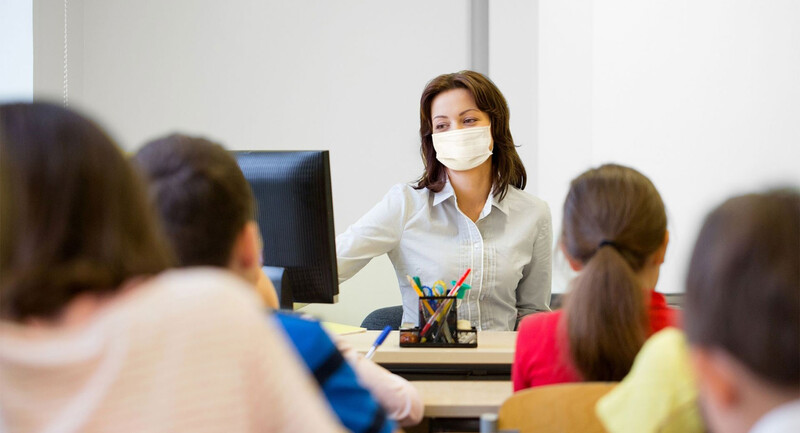Motivation is the sole factor that drives human behavior. In education, presence or absence of staff motivation often means a difference between thriving innovative schools with engaged students or professional and instructional stagnation.
Motivation is a complex concept. In essence, motivation is the desire of an individual to perform and repeat an action. Motivation is usually directed towards a positive stimulus (or away from a negative one) and ends up with “liking phase.” (Robbins & Barry) While there are numerous factors that affect motivation, just recently, research in the field of psychology connected professional happiness and task engagement to the quality of interpersonal interactions.
It is not a secret that teachers feel motivated when they experience personal and professional fulfillment, which largely relies on the relational climate of the school. This means that one way motivation can be improved is by developing positive relationships across the entire school: among members of the staff, teachers and students, and teachers and families.
Collegial Relationships Among Staff as a Motivator
Relationships among adults in a school are perhaps the most powerful staff motivator. Without a supportive circle of fellow colleagues, who share one’s setbacks and small victories, motivation is hardly ever possible. A positive culture does not happen by chance, and building leaders and staff members need to be intentional in the environment they create.
Define and Model Collegial Relationships
To build a culture where people feel motivated, norms have to be explicitly defined by all involved. What is important to one person, may not be valuable to another. When norms are mutually developed and agreed upon, then everyone, starting with the principal, is part of the accountability process.
It is extremely important that the principal models respectful interactions and sets expectations for positive collegial relationships, a standard for all to follow. Leaders can model respect and trust by assuming best intentions, listening to understand, and expressing thoughts honestly and respectfully. They also need to recognize and celebrate teachers’ accomplishments no matter how big or small they are. These behaviors will boost staff motivation.
Team building activities are also a way to develop collegial relationships among staff. Activities could range from off-site retreats to icebreaker activities in a staff meeting. Personal ease creates a nurturing atmosphere for professional engagement.
Trusting Relationships Between Teachers and Students as a Motivator
Just as staff members show enthusiasm about their work when they experience positive relationships among themselves, teachers become more driven when they have trusting relationships with their students. As human beings, we are wired to help those who depend on us. Relationships allow us to understand how.
Get to Know Your Students
Teachers have to make it a priority to know their students and find out their interests and motivations. Writing time can be used to focus on areas that interest students: an experience they have had, a favorite book they have read, a goal they wish to achieve. This will allow the teacher to obtain an insight into what motivates a child and apply this to personalize his or her learning.
Check in and check out with students is another way to develop relationships, which can be used by any staff member at school. Each morning and afternoon, educators can focus on one or two students to ask them about their day and what is going on in their lives (after school activities, shows they watch, or groups they participate). A few moments of personal connection can help develop trust and ignite ideas that could benefit many students.
Give Students a Voice and A Choice
Students who are given voice and choice are more likely to open up and develop trust in their teachers than those who feel that their perspective doesn’t matter.
In Genius Hour, for example, the teacher can set the parameters of the lesson and allow students to pick the topic of interest, conduct the necessary research, and choose the method of sharing their knowledge of the subject. Another method of enabling a voice and choice is presenting students with a real-world problem and facilitating activities, in which they develop solutions. This would allow a teacher to see various sides of students and gain another perspective on how they learn. Empowering students is motivating for both the teachers and the children.
Collaborative Relationships Between Teachers and Families as a Motivator
While most educators realize the importance of school-families collaboration for student achievement, only rarely the quality of this relationship is considered as staff motivational factor. Yet, any teacher who has ever experienced parental confrontations knows how draining and discouraging this could be.
To cultivate collaborative relationships with families, parents need to understand not only what, but how it is being taught, and expectations of them as partners in education.
Help Families Understand Your School’s Learning Philosophy and Instructional Practices
Curriculum Nights are always a good starting point. Teachers can share short videos capturing practices from a previous year and connect them to the skills children will be acquiring in their classrooms. Parents will most likely notice things unfamiliar to them – this is a good time to open a dialogue, share additional resources, and invite families to continue sharing their thinking and questions electronically or in person throughout the year.
Open classroom policy is now being practiced by many teachers, welcoming parents to participate in classroom activities or simply observe any time they wish. Other teachers hold open classroom events as an occasion to show off student work. These events can last an hour to two hours every other month. A teacher usually decides on what aspects of student learning parents need to focus during the visit and what understandings they need to reach. Incorporating these events helps build understanding, strengthen trust, and bring about new ideas.
Set Expectations of Collaboration and Shared Responsibility
Schools have to make it clear to families that they are expected to be colleagues in education of their children. General expectations can be set at Curriculum Nights, while task-related expectations are communicated as needed. Parents must be aware of how, specifically, they can assist their child.
Regularly, educators have to solicit learning feedback from families. It usually works best when the feedback is narrow-targeted, for example, whether a specific homework is useful, how a child feels about a particular concept or instructional method, or how well parents understand their child learning progress in a specific subject. An email invitation to share what works and what doesn’t can initiate a positive dialogue, establish areas where a child might need more help, and inspire new thinking.
Parents also have to participate in decision-making process. It is important that they are aware about various options that exist within the school system, such as advanced or remedial programs, well in advance, and work with schools on their students’ goals and placements. A shared vision will motivate all of the parties to word towards a goal.
Concluding Thought
As discoveries in neurobiology show, the human brain is pliable and constantly being reshaped through interaction with the environment. When educators, families, and students feel comfortable with one another, have a voice and choice, and share a common goal and responsibility, teachers get a better grasp on their individual students’ needs, often feel inspired to work in tandem with parents, and collaborate with each other on various ways to help children grow.
Arina Bokas is a producer and a host of the Future of Learning television series on Independence TV and the editor of Kids’ Standard magazine in Clarkston, Mich. She is also a faculty member at Mott Community College in Flint, Mich. Connect with Bokas on Twitter. Jon Wennstrom is the principal of Buchanan Elementary in Livonia, Michigan, and serves on the board of directors for the Michigan Elementary & Middle School Principals Association (MEMSPA). Follow Jon on Twitter @jon_wennstrom.








